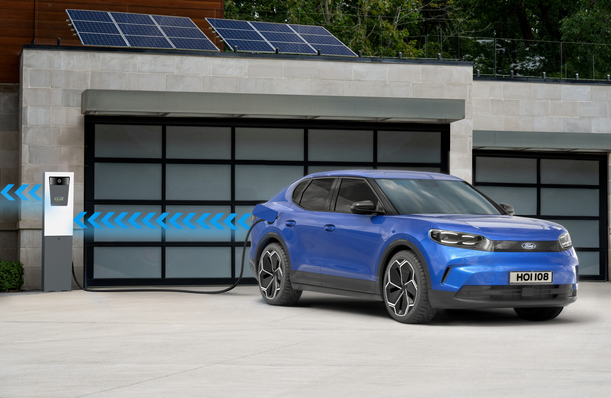Here, photovoltaic modules from IBC Solar supply e-vehicles at Trier University of Applied Sciences with environmentally friendly solar power. An energy management system that covers peak loads together with a commercial power storage unit is also involved.
Zero Emission Mobility Center
Electro mobility is one of the key technologies for the reduction of CO2 in cities. But even in rural areas, it can become a successful model. This is proven by the project "Zero Emission Mobility Center" at the Environmental Campus Birkenfeld of the University of Trier. For this, the university had solar carports and charging stations built. Solar power is used for the energy generation.
Three carports with 96.6 kW installed
A total of three carports with a capacity of 96.6 kilowatt (kW) were installed on the campus. A further carport with around 4 kW is also located at the station in town. In order to charge the universities electronic vehicles with energy, the campus has two DC fast charging stations, each with 75 kW charging power, and an AC charging station. Another AC charging station is also located at the train station. The public charging stations are mainly used for the electric service vehicles of the university. In addition, around 15 public and private electric vehicles are currently in regular use at the Birkenfeld Environmental Campus.
For the planning and implementation of the project, KLE Energie relied on the support and energy solutions of its cooperation partner IBC Solar. “We attach particular importance to planning an optimally coordinated photovoltaic system. In addition, we only use high-quality components, such as those from IBC SOLAR," says Henning Lorang, Managing Director of KLE. A total of 375 modules from IBC Solar's own brand were installed on the roofs of the solar carports.
Up to 1,000 tons less CO2
Each year, the solar carports will generate around 96,000 kilowatt hours (kWh) of energy. This means that around 900 tons of environmentally harmful CO2 will be saved over an operating period of 20 years. Over the next 20 years, the Environmental Campus Birkenfeld will be able to reduce its electricity costs with the help of solar carports. In addition, there is the saving for the so-called peak load capping (peak shaving). An energy management system (EMS) with a battery storage system helps to smooth out consumption peaks with particularly high electricity demand at the carports. If the capacity of the battery storage is insufficient, the charging stations are dynamically controlled by the EMS. This avoids high electricity procurement costs and relieves the load on the power grid.
"The project demonstrates to what extent solar systems combined with an intelligent energy management system, storage and e-mobility can contribute to achieving our climate protection targets. And not only in urban regions, but also in rural areas," says Udo Möhrstedt, CEO and Chairman of the Board of IBC Solar. (HCN)







